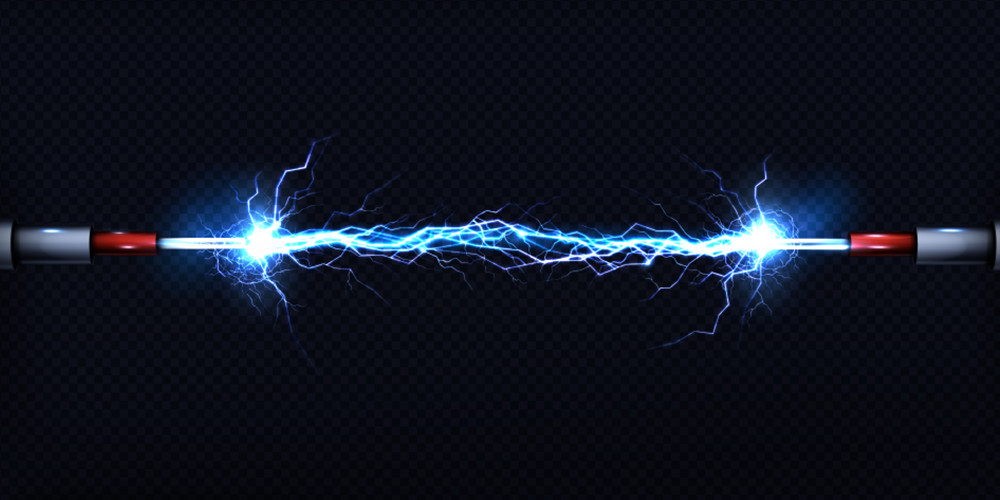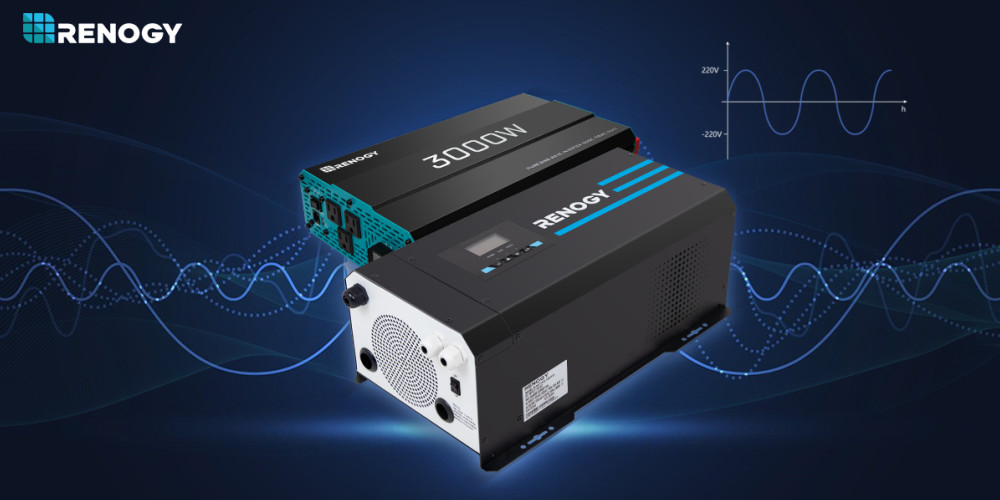The Complete DC to AC Converter Guide
DC to AC Inverter, also called direct current to alternating current converter or DC to AC Converter, is a necessary tool in building your solar system. In this guide, we’ll tell how DC and AC power works, how to convert DC to AC power, and other basics of DC to AC conversion.
What are DC electricity and AC electricity?
What is DC electricity?
DC electricity is a power supply that enables constant voltage and is used in devices like your mobile phone or TV. One example of DC power is a standard USB charging device, where the voltage remains steady, and the current follows one direction — from positive to negative.
What is AC electricity?
The “A” in AC stands for alternating because the flow of current switches direction (unlike in DC where it only goes in one direction, from positive to negative). AC electricity flows into your home or business from the electric power grid and is constantly changing its flow between positive and negative terminals.
Differences Between DC and AC
Aside from the difference in flow direction, another main difference between the two is that AC power can be easily adjusted, or throttled, via transformers. By throttling the power up (e.g., into the hundreds of thousands of volts), power can be moved at a lower current — which directly translates to lower power loss in transmission. When the power arrives at its destination, such as your home or business, it is then throttled back down to a usable level.

Image by vectorpouch on Freepiks
DC power is used in nearly all modern electronic devices and equipment, which is why they have chargers or power adapters — the adapter converts AC power to DC. Although these devices might use AC signals, they actually operate from a DC supply. One of the reasons why these devices require DC power is that they feature transistors, the essential backbone of integrated circuits, which require a DC voltage to operate.
Why Is DC to AC Conversion Necessary?
Most renewable energy systems, such as solar, generate power in DC form, which is why it’s necessary to convert the generated DC power into AC power for use in your home or business. For solar purposes, it’s recommended to use a solar DC to AC conversion calculator to determine the proper solar DC to AC conversion factor. DC to AC conversion is also needed for wind turbines or anything involving batteries (e.g., an electric car). And pure sine wave inverters are among the best choices for converting solar power into AC power.
How an inverter converts DC to AC power?
How an inverter converter electrity from dc to ac? In order to convert DC to AC power, the power flow needs to be affected in a way that alters the one-way flow of DC power into the alternating flow of AC — this is achieved by using what’s known as an H-Bridge, which successfully converts DC’s one-way flow into the back-and-forth current of AC.
Converters work to automatically impact this change by relying on transistors and constantly altering DC’s flow of current several times per second (e.g., 50,000 or 50kHz) to achieve the desired output of AC. DC to AC converters, or inverters, are required when users need to convert the generated DC power into AC power. We highlight one of these scenarios below.
Starting from here, you might want to know what is an inverter and what does an inverter do.
Do I Need a DC to AC Converter for an Inverter?
If your home uses solar power, or you use appliances that require AC power and aren’t connected to the electric grid (i.e., your home or business relies on power banks or batteries), you’ll need to use a DC to AC inverter. An “inverter” is just another term for a DC to AC converter because you’re inverting the direct current (DC) current into alternating current (AC).
What Inverters Convert DC to AC is the best?
What is the best inverters can converter from dc to ac? Choosing the appropriate DC to AC inverter for your specific needs depends on several factors. Here are some of the main considerations to keep in mind during your search for the best inverter:
- Do you need a portable inverter or a home-use inverter?
- Do you need a converter that has battery-backup capabilities?
- Will your inverter be used for off-grid purposes?
- What is your total wattage requirement? What about surge wattage?
- Do you know if you need a pure sine wave inverter or a modified sine wave inverter?

Image by Renogy
In most cases, modified sine wave inverters are a more cost-effective choice, but if whatever you need to power relies on a pure sine wave, then you’ll need to purchase that type of inverter — this is why it’s important to have a deep understanding of your DC to AC conversion needs prior to beginning your product search and making a purchasing decision. We have another in-depth guide on inverters here.
Can All Inverters (DC to AC Inverters) Convert AC to DC if Used in Reverse?
Generally speaking, nearly all modern DC to AC inverters can convert AC to DC power, but only under the right circumstances. Most modern inverters have the appropriate circuitry to be able to handle AC to DC conversion but need the appropriate controls, which many inverters might not be able to handle. In most cases, although many inverters can convert AC to DC, they aren’t necessarily designed for it. We recommend purchasing an inverter that specifically features that capability if it is required for a use case.
Where you can buy DC to AC Converter?
Now that you know everything about DC to AC converters, or inverters, you might consider where to purchase a reliable inverter. And once your purchase criteria are reliability, premium quality and affordability, Renogy has you covered. Check out our 1000W, 2000W, and 3000W battery inverters on Renogy store right now.








